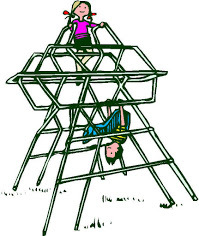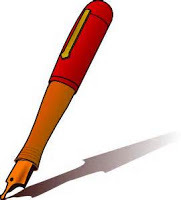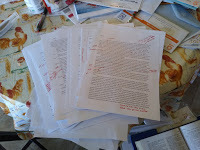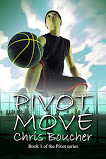Michael Embry's Blog, page 5
July 14, 2021
Writing in the Mood
While having lunch with a longtime friend, he mentioned that he enjoyed my novels but confessed that he almost couldn't finish one because he found it depressing.
He said he stayed with it and was relieved when it lightened up to some extent. I thanked him for the feedback. I told him that the novel probably reflected my state of mind at the time, but also that it was a mood that I wanted to convey to the readers. From his observation, I believe I succeeded.
 The novel in question is Old Ways and New Days, the book that launched my John Ross Boomer Lit series in 2015 (I retired that same year).
The novel in question is Old Ways and New Days, the book that launched my John Ross Boomer Lit series in 2015 (I retired that same year).The story begins with John Ross clearing out his office, where he was sports editor at a newspaper. The paper is being downsized so he takes an early buyout. But he is depressed as part of his life has been turned upside-down. He has spent most of his adult life in the workplace. Now he has to find a new purpose in life.
John wrestles with these feelings of emptiness for part of the book until he gets involved in a community activity. He has a wife who provides moral support. He also gets a dog. And then he begins to reconnect with some old friends, all retired, who help him gain perspective on his life.
There are various moods in novels and other forms of fiction as well as nonfiction — from dark to humorous to melancholy to fatalistic and everything in between and beyond.
Mood is created by the characters, especially the protagonist and that person's state of mind. In Old Ways and New Days, John was depressed by the turn in his life. He was in a deep funk.
Mood is also conveyed in settings. The opening setting with John, alone in his office, putting personal belongings, books, and memorabilia in a box. While that initial scene invokes sadness, later scenes in the book have him accepting these "new days" in his life.
John drives home in the dark, alone in his thoughts, he thinks about the previous years he spent at the newspaper and what the future will hold for him.
As the series has moved on to three other books, and a fifth being released on Oct. 1, they present different moods as John is dealing with new challenges and opportunities in his life.
Different moods can be felt with novels, while some carry from the first page to the last. And when deciding on what to read, don't we also choose books depending on our mood at the time?
For more tips about mood, check out these posts (and Google for more):
Novel writing: How to create strong mood
How to set the mood in your novel
Until the next time . . .
July 10, 2021
Manuscript Report: Galley Finished and Recent Reads
It's been a while since I last posted (a little more than two months) and there's really no excuse for it. I believe it may have been a mild, or perhaps moderate, case of writer's block because I've never gone that long without posting something.
Did you miss me? Don't answer that!
It's not like I've been sitting around doing nothing I've read two manuscripts from friends for blurbs to be included when their novels are published.
I also read another book, mine.
It was the galley to proofread for any typos or other problems. It's probably the 12th or 13th time I've read the manuscript, which will be a published work on Oct. 1. I'll have another post about it in a week or so that will include the cover.
As for the galley, I didn't find many things to fix, which is good. And I thought the novel read well — if I say so. I thought my editor and copyeditor did a great job in preparing the novel for readers.
It will be the fifth novel in the John Ross Boomer Lit series. The most recent was "Make Room for Family," which was released last Feb. 1. Time flies.
Here are couple recent reads from the young adult market:
 Ken Hodge's coming-of-age story about a boy growing up in Oregon in the decade before World War II. Hamilton Skutt, the narrator, has plenty of tales to tell, with some salty language to go along with his humorous escapades with family and friends. Skutt certainly had a colorful life that brought him into contact with lots of people including a mysterious Mexican who enters and leaves his life, always handing him a card that has him perplexed about what it means.
Ken Hodge's coming-of-age story about a boy growing up in Oregon in the decade before World War II. Hamilton Skutt, the narrator, has plenty of tales to tell, with some salty language to go along with his humorous escapades with family and friends. Skutt certainly had a colorful life that brought him into contact with lots of people including a mysterious Mexican who enters and leaves his life, always handing him a card that has him perplexed about what it means.
 Mike Ryan weaves a time-travel novel for young adults that provides history lessons as well. The story centers around Gordon Beckwith, a history buff, who lands a summer job working in the Massachusetts government. He discovers a time portal that carries him back to the Revolutionary War. The story presents interesting characters, mostly young teens, who bring diverse backgrounds as they try to grow and work together. Until the next time . . .
Mike Ryan weaves a time-travel novel for young adults that provides history lessons as well. The story centers around Gordon Beckwith, a history buff, who lands a summer job working in the Massachusetts government. He discovers a time portal that carries him back to the Revolutionary War. The story presents interesting characters, mostly young teens, who bring diverse backgrounds as they try to grow and work together. Until the next time . . .
May 6, 2021
Manuscript Report: Back to the Editor and Recent Read
My latest manuscript is back in the hands of my able and trusting editor. She'll make the edits, send it on to a proofreader, and format the work into a galley proof.
I probably added another 800 words to the manuscript, bringing the total to about 60k. There were some transitions needed between scenes, dialogue fixes, and additional descriptive passages in the "show, don't tell" category.
The galley will return to me for a final read and minor edits for any typos as well as grammatical errors, and misspellings that may have slipped through on the first edits. If you're wondering if I'm getting tired of reading and editing the manuscript, well you're right. But it's a process that has to be done to make things right for the writer and reader.
While I'm busy with the words, the graphic artist at Wings ePress will try to capture the essence of the words into a book cover that will pique the interest of readers.
If all goes well, the manuscript and cover will magically (at least in my mind) transform into a book, the fifth in the John Ross Boomer Lit series, on Oct. 1.
And here is a recent read:
 William H. Coles's book is for those who are interested in writing fiction, providing examples of how to approach different areas such as scenes, characters, structure, dialogue, and revision. He's the author of novels, short stories, and essays, He also created www.storyinliteraryfiction.com, a useful website with resources for writers, illustrators, and readers of literary fiction. Check it out!
William H. Coles's book is for those who are interested in writing fiction, providing examples of how to approach different areas such as scenes, characters, structure, dialogue, and revision. He's the author of novels, short stories, and essays, He also created www.storyinliteraryfiction.com, a useful website with resources for writers, illustrators, and readers of literary fiction. Check it out!
For those on Goodreads, feel free to follow and/or friend me by clicking here.
Until the next time . . .
May 1, 2021
Manuscript Report: The Big Edit and Recent Reads
It took me a while but I completed the editor's edits on my latest manuscript. I hope to return it to her in the next few days, but first I want to give it one more read to make sure it flows and there are no holes to swallow readers.
One change I did make in the story was to change the name of one of the characters because it was similar to another character's name. A few years ago I attended an author's talk about his works and mentioned that he regretted naming primary characters with similar names because it was confusing to readers.

From my experience, I also found it confusing while writing the novel, especially when the characters were conversing. If I can lose track, it has to be difficult for readers. I certainly don't want to lose them through confusion.
Back to the editor's edits, she noted a few problems that I fixed and made some recommendations that I considered. I didn't agree with everything, but I appreciate her concern. I believe that she'll understand my reasoning for why it was written the way it is, or was. Editing is a difficult, sometimes thankless job. I'm always thankful when my writing is edited.
I confess that I don't really enjoy this phase of the editing process. Why? Because I get upset with myself for making stupid and, at times, careless mistakes. They seem to explode on pages when I open the document. There are some that I can't believe are there, thinking that some gremlin must have inserted them after I sent the manuscript to her. If not that, perhaps something saner as forgetting to hit the "save" button after making changes. I don't mind constructive criticism, and that's what I receive from my editor (even if we don't always see eye-to-eye).
I'm also working with the art director on a cover for the novel, which will be the fifth in the John Ross Boomer Lit series. I give suggestions and she does all the work. More on that later.
Before leaving, here are a couple recent reads:
 Virginia Smith's romantic thriller involves innocent bystanders who get caught up in the world of drug trafficking and a corrupt politician. Ben and Nikki are former lovers who get pulled into the web of crime. They come across numerous deadly encounters along the way. Some things about their relationship also come to light in this story. The novel also falls under Christian romance as the couple seeks refuge through prayer.
Virginia Smith's romantic thriller involves innocent bystanders who get caught up in the world of drug trafficking and a corrupt politician. Ben and Nikki are former lovers who get pulled into the web of crime. They come across numerous deadly encounters along the way. Some things about their relationship also come to light in this story. The novel also falls under Christian romance as the couple seeks refuge through prayer.Karen Hudgins mixes murder and art in her entertaining murder mystery. A noted art restorer is slain while examining a Monet painting in her studio. P.I. Diane Phipps is brought in from Florida to assist local law enforcement in the Colorado town to solve the murder that has few clues. But that's Phipps's forte as she delves into the crime that appears at first has no motive or witnesses. Hudgins keeps you guessing until the end.
Until the next time . . .
April 11, 2021
Boomers: Simple Reality
I often see posts and memes on social media sites from baby boomers about yearning to return to simpler times, years ago when we didn't seem to have a care in the world.
It was back in the days when we watched "The Long Ranger," "Superman," and "Leave It To Beaver" on television sets. We played out outside until the street lamps came on, without being distracted by smartphones or other tech devices. We rode in cars without seat belts, or if younger, safety seats. We played board games such as Monopoly, Yahtzee, and Scrabble and various card games, those family-oriented activities on dining-room tables or living-room floors. It seemed that everyone remembers being at chuch on Sundays.
There's a reason most of us, especially those living in white middle- and upper-class America, had easy lives. We were much younger and had relative few cares or responsiblities. It was our parents and other adults who took us by the hand and guided our charmed lives.
 A simpler timeMost of us who had mothers who stayed home and cared for us, from feeding our hungry little mouths, wiping our dirty little butts, reading to us and then tucking our tired bodies in bed. They washed and ironed our clothes, volunteered to chaperone on school field trips, and served as den leaders in cub scouts.
A simpler timeMost of us who had mothers who stayed home and cared for us, from feeding our hungry little mouths, wiping our dirty little butts, reading to us and then tucking our tired bodies in bed. They washed and ironed our clothes, volunteered to chaperone on school field trips, and served as den leaders in cub scouts.
For many of us, our dads got up early in the morning and spent most of the day at work to pay our food, clothes, shelter, toys, and medical expenses. They also served as coaches and umpires in youth leagues. They also found time to mow the lawn, especially if we were too young to help, wash the car, and assist mom with various honey-dos.
Yes, it was a simpler time, for those of us growing up because we had little or no responsibilities other than to keep our noses clean and show a degree of respect to our elders. It was our parents and guardians who paid and paved the way for our wonder years.
Nostalgia is a wonderful but it's not possible to return to that life unless one can turn back the biological clock. Yes, I can yearn for the time when I was a preteen, but that's six decades ago.
Time marches on, and you can either keep in step or wallow in period that will never be.
Until the next time . . .
April 4, 2021
Brief Timeout from Manuscript and Recent Reads
My work-in-progress is now a work-in-process as it has been sent to my editor to begin steps to publication so I'm taking a short breather and relax.
 This will be the fifth book in the John Ross Boomer Lit series and will be published Oct. 1 by Wings ePress. I've put in a lot of hours the past couple of months so it's time to sit back for a day or so.
This will be the fifth book in the John Ross Boomer Lit series and will be published Oct. 1 by Wings ePress. I've put in a lot of hours the past couple of months so it's time to sit back for a day or so.
I missed my deadline of completing it on April 1 by one day because I made several final-day changes before hitting the send button. I could have made more edits/rewrites but there comes a time when you have to hand it over to the editor because it can become an all-consuming process that has no end.
Between now and then, the manuscript will be edited and returned to me to make corrections and consider suggestions. After issues are resolved, it will be sent to a proofreader to spot other problems such as typos and grammatical errors. The manuscript will then be transformed into a galley proof for one final read to make any additional changes before being published.
In the meantime, I'll be working on loglines, website blurbs, marketing input, and working with a graphic artist on a cover. So there's lots of work ahead of me and the talented folks at Wings ePress before the launch date.
By the way, the manuscript clocked in at 59k words, about 9k more from the first draft following National Novel Writing Month last November. The finished novel could be more or less, depending on what happens during this next phase of the editing process.
I also hope to begin working on the sixth book in the series after completing some of the odds and ends. There's more to tell about the life and times of John and Sally Ross.
***
Recent reads:
 Paul Maher Jr.'s book sets the stage for Jack Kerouac's classic On the Road, providing background on the real-life characters and places that populate the popular novel. This book is a must-read for those who want to understand the life and times of the Kerouac as well as his inspirations and aspirations as a writer.
Paul Maher Jr.'s book sets the stage for Jack Kerouac's classic On the Road, providing background on the real-life characters and places that populate the popular novel. This book is a must-read for those who want to understand the life and times of the Kerouac as well as his inspirations and aspirations as a writer.
 I revisited George Orwell's classic dystopian novel, curious to see how it has held up, especially since 1984. It's still an interesting read but overwritten (my humble opinion) in parts. But overall the book is a cautionary tale about totalitarian government, published after World War II (1949). We learn about "Big Brother," thought control, and much more. Chilling!
I revisited George Orwell's classic dystopian novel, curious to see how it has held up, especially since 1984. It's still an interesting read but overwritten (my humble opinion) in parts. But overall the book is a cautionary tale about totalitarian government, published after World War II (1949). We learn about "Big Brother," thought control, and much more. Chilling!
Until the next time . . .
March 26, 2021
Another Progress Report on Manuscript
I've completed making the line edits on my work-in-progress, the fifth book in the John Ross Boomer Lit series.
While fixing the various and sundry marks noted in red ink on the hard copy, I also jotted down some additional work that needs to be done before submitting the manuscript to my Wings ePress editor by March 31.

I noticed several scenes that need to be expanded. There were a few minor changes that I will address such as character names and background. I'll be doing that while giving the novel-to-be one final read over the next five days. I have a notecard listing the rewrites/edits that I will check off when completed.
I'm also working on a book title. I have a working title (something I do with every WIP). I've compiled a list of about 10 that I'll tinker with over the next five days. Much like a book cover, a title is important because an author wants it to provide a strong first impression on potential readers. As for a book title, that'll be taken care of in the next few months with the publisher's art director.
 My only concern right now is that I had received my second COVID-19 vaccine this morning. The nurse told me that I could have some side effects from it, including flu-like symptoms. Friends have told me they ran low-grade fevers and felt lethargic for a few days. I hope it's no more than that for me.
My only concern right now is that I had received my second COVID-19 vaccine this morning. The nurse told me that I could have some side effects from it, including flu-like symptoms. Friends have told me they ran low-grade fevers and felt lethargic for a few days. I hope it's no more than that for me.As mentioned in previous posts, the novel will be published Oct. 1, eight months after the release of Make Room for Family, the fourth book in the series. For a list of my novels, visit my webpage. Other sites include Amazon and Wings ePress.
Until the next time . . .
March 20, 2021
More Progress on Manuscript and Recent Reads
I've made more progress on my manuscript while approaching an end-of-the-month deadline.
For those who read my last post, you know that I printed out the novel-to-be for a hard read with red-ink changes, corrections, deletions, and revisions. For those who didn't read my last post, now you know (you can follow my blog by clicking on "follow" button in the lower right column). The next order of writing will be to make the changes to the manuscript. And then it's probably on to my editor at Wings ePress unless I decide to give it one more read (and I most likely will).
 Marked-up manuscriptIt's probably because of my background in newspapers in the pre-computer era (we used typewriters) as well as my years in high school and college that editing on paper seems more natural. It's akin to those folks who prefer reading a book in print, to where they can hold a book, turn and feel the pages, etc., then reading a book on a tablet, Kindle, Nook, or another electronic reader. I worked on the manuscript at the kitchen table to give myself a fresh view; the book in the right-hand corner is The Random House Thesaurus.
Marked-up manuscriptIt's probably because of my background in newspapers in the pre-computer era (we used typewriters) as well as my years in high school and college that editing on paper seems more natural. It's akin to those folks who prefer reading a book in print, to where they can hold a book, turn and feel the pages, etc., then reading a book on a tablet, Kindle, Nook, or another electronic reader. I worked on the manuscript at the kitchen table to give myself a fresh view; the book in the right-hand corner is The Random House Thesaurus. Since my last post, I've learned the publication for this book will be Oct. 1, rather than Nov. 1. It will be the fifth book in the John Ross Boomer Lit series.
Recent reads:
 Toni Kief's Mildred in Disguise: With Diamonds could probably fall under the boomer-lit banner since the protagonist is 71-year-old Mildred Petrie. Rather than enjoy retirement, Mildred has to return to work after her husband's death. She takes a position as an undercover detective because of her previous police experience as a parking cop. Her observations and investigations after a robbery lead to some wild times for the wily septuagenarian. Kief has crafted a clever read with snappy dialogue, colorful characters, and a compelling storyline.
Toni Kief's Mildred in Disguise: With Diamonds could probably fall under the boomer-lit banner since the protagonist is 71-year-old Mildred Petrie. Rather than enjoy retirement, Mildred has to return to work after her husband's death. She takes a position as an undercover detective because of her previous police experience as a parking cop. Her observations and investigations after a robbery lead to some wild times for the wily septuagenarian. Kief has crafted a clever read with snappy dialogue, colorful characters, and a compelling storyline.
 Susie Kelley's La Vie En Rose: Notes From Rural France is a fun read by a British ex-pat. Kelly shares anecdotes about her life in France and adjustments she and her husband had to make. I found myself laughing out loud at some of her entries. She writes about rude salespeople, quirky neighbors, different customs, gardening, contacts with animals and insects, and a few recipes you may or may not want to try. Kelly has a cute sense of humor who doesn't hesitate to laugh at herself. I found that refreshing. It's only about 100 pages and a quick read.
Susie Kelley's La Vie En Rose: Notes From Rural France is a fun read by a British ex-pat. Kelly shares anecdotes about her life in France and adjustments she and her husband had to make. I found myself laughing out loud at some of her entries. She writes about rude salespeople, quirky neighbors, different customs, gardening, contacts with animals and insects, and a few recipes you may or may not want to try. Kelly has a cute sense of humor who doesn't hesitate to laugh at herself. I found that refreshing. It's only about 100 pages and a quick read. Until the next time . . .
March 6, 2021
Progress Report on Manuscript and Recent Reads
 I've completed the first rewrite of the fifth book in the John Ross Boomer Lit series. I'll sit on it for a couple days, then get back in earnest to have it ready for my editor by the end of the month.
I've completed the first rewrite of the fifth book in the John Ross Boomer Lit series. I'll sit on it for a couple days, then get back in earnest to have it ready for my editor by the end of the month.So far this is what I've accomplished:
The first draft was written during National Novel Writing Month in November.Read the manuscript in January, making minimal changes (spelling, grammar, etc.) to see how flows. I also wanted to see if I like the story; if I didn't, then the readers probably wouldn't either. (FYI, I like it.)I returned to the manuscript for a rewrite in February, increasing the word count by about 3k words. I also deleted a few scenes and dialogue as well.What I've done this time is print the manuscript. I'll go over it with red ink (much like the editing many of us experienced in high school and college), and make needed fixes while giving it a read from a different perspective. Believe it or not, I see and read things differently on paper than on the computer screen (much like a book and e-book).
Then I'll go back to the saved manuscript on my computer and make the red-line edits and perhaps make a few minor changes that catch my eyes. Most authors will tell you that editing is a neverending task.
If all goes well, after all the changes, I'll give it another quick readthrough and send it on to my trusted editor at Wings ePress. By the way, the manuscript is scheduled to transform into a book on Nov. 1 so stayed tuned for further announcements such as the title and cover reveal.
---
A few book recommendations:
 Chris Boucher's Pivot Move is a young adult novel that deals with basketball, peer pressure, bullying, and divorce. Boyd Kindle is a raw but talented basketball player who is dealing with several issues in his life. He has alopecia, a condition that causes the body to shed hair, which he tries to cover up by wearing a hoodie. He's a confused and angry 14-year-old. Boucher writes in the first person to give readers a feel for the boy's angst but also provides empathy and humor.
Chris Boucher's Pivot Move is a young adult novel that deals with basketball, peer pressure, bullying, and divorce. Boyd Kindle is a raw but talented basketball player who is dealing with several issues in his life. He has alopecia, a condition that causes the body to shed hair, which he tries to cover up by wearing a hoodie. He's a confused and angry 14-year-old. Boucher writes in the first person to give readers a feel for the boy's angst but also provides empathy and humor. Michael Jennings' Like a Wary Blessing is a collection of short stories that delve into the effects of war on individuals. Jennings, a Vietnam vet and former newspaper reporter, writes with precision and depth as he examines how soldiers and citizens attempt to cope with the ugly side of combat from different perspectives. Some individuals succeed and others don't in these insightful stories that cover topics such as race relations, suicide, and post-traumatic stress syndrome.
Michael Jennings' Like a Wary Blessing is a collection of short stories that delve into the effects of war on individuals. Jennings, a Vietnam vet and former newspaper reporter, writes with precision and depth as he examines how soldiers and citizens attempt to cope with the ugly side of combat from different perspectives. Some individuals succeed and others don't in these insightful stories that cover topics such as race relations, suicide, and post-traumatic stress syndrome. Until the next time . . .
Progress Report on Manuscript
 I've completed the first rewrite of the fifth book in the John Ross Boomer Lit series. I'll sit on it for a couple days, then get back in earnest to have it ready for my editor by the end of the month.
I've completed the first rewrite of the fifth book in the John Ross Boomer Lit series. I'll sit on it for a couple days, then get back in earnest to have it ready for my editor by the end of the month.So far this is what I've accomplished:
The first draft was written during National Novel Writing Month in November.Read the manuscript in January, making minimal changes (spelling, grammar, etc.) to see how flows. I also wanted to see if I like the story; if I didn't, then the readers probably wouldn't either. (FYI, I like it.)I returned to the manuscript for a rewrite in February, increasing the word count by about 3k words. I also deleted a few scenes and dialogue as well.What I've done this time is print the manuscript. I'll go over it with red ink (much like the editing many of us experienced in high school and college), and make needed fixes while giving it a read from a different perspective. Believe it or not, I see and read things differently on paper than on the computer screen (much like a book and e-book).
Then I'll go back to the saved manuscript on my computer and make the red-line edits and perhaps make a few minor changes that catch my eyes. Most authors will tell you that editing is a neverending task.
If all goes well, after all the changes, I'll give it another quick readthrough and send it on to my trusted editor at Wings ePress. By the way, the manuscript is scheduled to transform into a book on Nov. 1 so stayed tuned for further announcements such as the title and cover reveal.
---
A few book recommendations:
 Chris Boucher's Pivot Move is a young adult novel that deals with basketball, peer pressure, bullying, and divorce. Boyd Kindle is a raw but talented basketball player who is dealing with several issues in his life. He has alopecia, a condition that causes the body to shed hair, which he tries to cover up by wearing a hoodie. He's a confused and angry 14-year-old. Boucher writes in the first person to give readers a feel for the boy's angst but also provides empathy and humor.
Chris Boucher's Pivot Move is a young adult novel that deals with basketball, peer pressure, bullying, and divorce. Boyd Kindle is a raw but talented basketball player who is dealing with several issues in his life. He has alopecia, a condition that causes the body to shed hair, which he tries to cover up by wearing a hoodie. He's a confused and angry 14-year-old. Boucher writes in the first person to give readers a feel for the boy's angst but also provides empathy and humor. Michael Jennings' Like a Wary Blessing is a collection of short stories that delve into the effects of war on individuals. Jennings, a Vietnam vet and former newspaper reporter, writes with precision and depth as he examines how soldiers and citizens attempt to cope with the ugly side of combat from different perspectives. Some individuals succeed and others don't in these insightful stories that cover topics such as race relations, suicide, and post-traumatic stress syndrome.
Michael Jennings' Like a Wary Blessing is a collection of short stories that delve into the effects of war on individuals. Jennings, a Vietnam vet and former newspaper reporter, writes with precision and depth as he examines how soldiers and citizens attempt to cope with the ugly side of combat from different perspectives. Some individuals succeed and others don't in these insightful stories that cover topics such as race relations, suicide, and post-traumatic stress syndrome. Until the next time . . .




